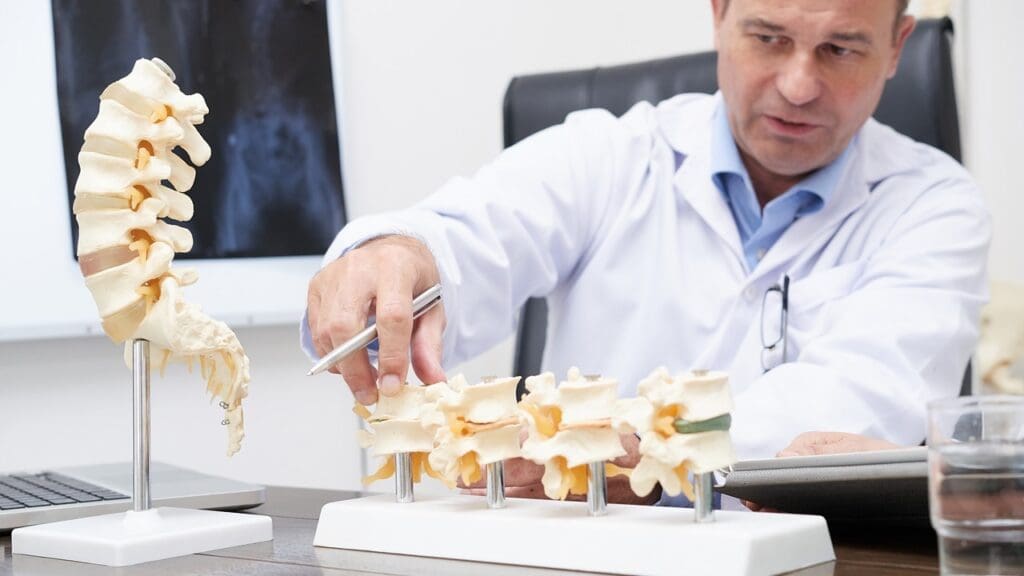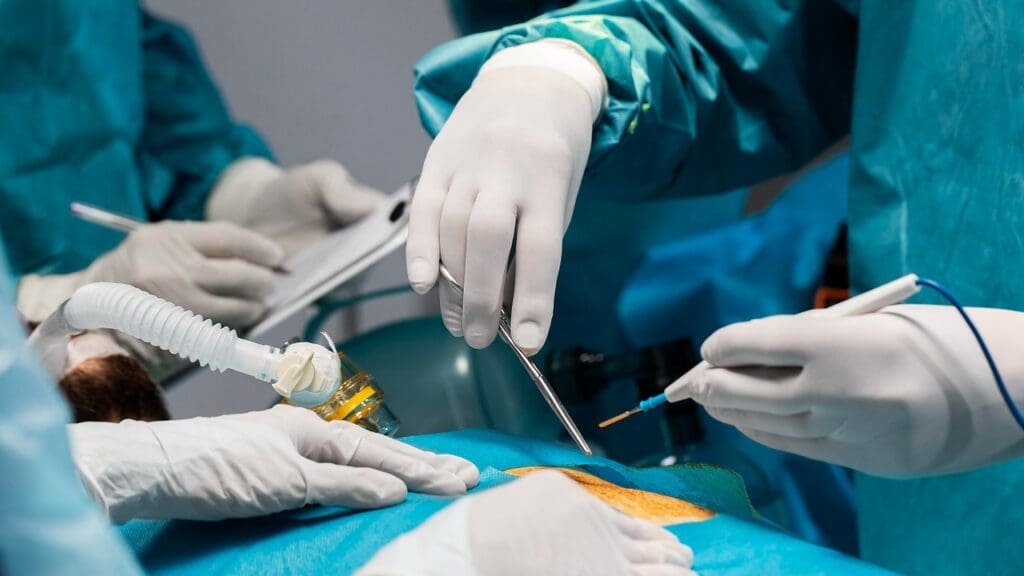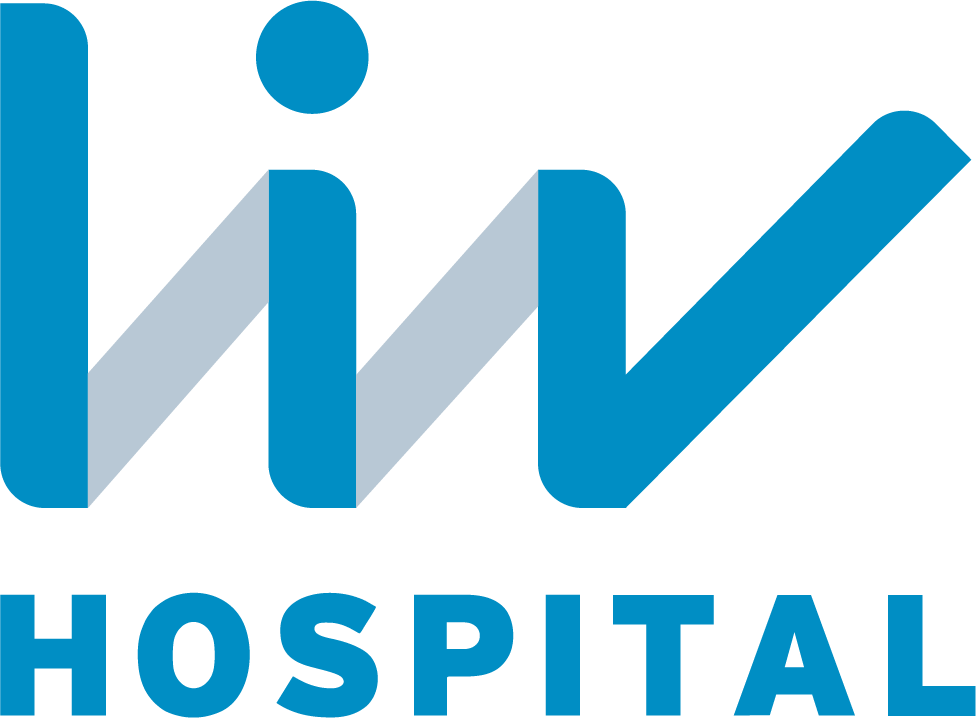
Choosing to have surgery for a trapped nerve is a big decision. Knowing how long it takes to recover is key to planning. At Liv Hospital, we focus on you, following international medical standards. We guide you through a safe and effective recovery.
Surgery is needed when other treatments don’t work for nerve compression. How long it takes to get better depends on the surgery type, your health, and how complex it is.
We know how important recovery time is in choosing your treatment. Our team is dedicated to giving you the best care and support during your recovery.
Key Takeaways
- Recovery time varies based on the type of surgery and individual health.
- Nerve compression surgery aims to restore function and sensation.
- Liv Hospital prioritizes patient-centered care and international medical standards.
- Understanding recovery time is key for planning and making informed decisions.
- Comprehensive care and support are provided throughout the recovery period.
Understanding Trapped and Pinched Nerves

Nerve compression, or a pinched nerve, can really hurt and mess up your day. It happens when a nerve gets squished or pinched. Knowing why it happens, what symptoms to look out for, and where it usually occurs is key to finding the right treatment.
Common Causes of Nerve Compression
Many things can cause nerve compression. For example, herniated discs, bone spurs, and thickened ligaments can all put pressure on nerves. This is often seen in the spine, lower back, and neck. Sometimes, it’s because of doing the same thing over and over or getting hurt.
Symptoms That May Require Surgical Intervention
For mild cases, you might just need to rest and try some other treatments. But if the pain, numbness, tingling, and weakness don’t go away, surgery might be needed. This could be pinched nerve spine surgery or pinched nerve in lower back surgery.
Locations Where Nerve Compression Commonly Occurs
Nerve compression can happen in different places, like the spine, lower back, and neck. The lumbar and cervical spine areas are more prone to it because of their anatomy and how much they move. Surgery, like back or neck surgery, might use new, less invasive techniques to help nerves.
When Surgery for a Trapped Nerve Becomes Necessary

When other treatments don’t work, surgery might be needed to relieve a trapped nerve. Doctors decide on surgery based on how bad the symptoms are, how much they affect daily life, and if the nerve problem is getting worse.
Failed Conservative Treatment Approaches
First, doctors try treatments like physical therapy, medicine, and changes in lifestyle to treat trapped nerves. But if these don’t help, surgery might be the next step. About 10-20% of people with pinched nerves might need surgery after trying other treatments.
Progressive Neurological Symptoms
If nerve symptoms get worse, like more numbness, weakness, or trouble moving, surgery might be suggested. Quick surgery can help stop symptoms from getting worse and improve how you feel.
Quality of Life Considerations
How trapped nerve symptoms affect your life is also important. If pain or discomfort makes it hard to do daily things, sleep, or enjoy life, surgery might be considered. It aims to help you function better and improve your quality of life.
| Factors Influencing Surgery Decision | Description |
|---|---|
| Failed Conservative Treatments | When physical therapy, medication, and lifestyle changes fail to provide relief. |
| Progressive Neurological Symptoms | Increasing numbness, weakness, or loss of motor function. |
| Quality of Life Impact | When symptoms interfere with daily activities, sleep, or overall well-being. |
Understanding these factors helps us know when surgery for a trapped nerve is needed. This leads to better results and recovery for patients.
Types of Surgery for Trapped Nerve
If non-surgical treatments don’t work, surgery might be needed. The surgery type depends on where and how badly the nerve is compressed. It also depends on the patient’s health.
Minimally Invasive Spine Techniques
These techniques aim to cause less damage and help patients heal faster. Microdiscectomy and laminectomy are examples. They use small incisions to reduce pain after surgery.
“Minimally invasive surgery has changed how we treat trapped nerves,” says a top spine doctor. “It lets patients get back to their lives sooner.”
Traditional Open Surgical Approaches
Open surgery uses a bigger cut to reach the problem area. It’s used for more serious cases or when surgery for a pinched nerve needs a bigger fix, like spinal fusion. Recovery might take longer, but it can work well for nerve issues.
Comparison of Surgical Options
Choosing between the two types of surgery depends on several things. These include the patient’s health, how bad the symptoms are, and the nerve compression details. A spine specialist must evaluate each case carefully.
Experts agree, “The right surgery depends on the patient’s health and the surgeon’s expertise.”
Specific Procedures for Pinched Nerve in Back Surgery
Back surgery for a pinched nerve can include several procedures. Each has its own benefits and when to use it. The decision depends on where and how badly the nerve is compressed, and the patient’s health.
Microdiscectomy
Microdiscectomy is a small surgery to fix a pinched nerve from a herniated disc. It removes the part of the disc that’s pressing on the nerve.
Laminectomy
Laminectomy removes part or all of the lamina, a spine bone, to ease pressure on nerves. It’s often used for spinal stenosis.
Foraminotomy
Foraminotomy makes the foramen, where nerves leave the spine, bigger. This helps with nerve compression, great for foraminal stenosis.
Spinal Fusion
Spinal fusion joins vertebrae together with bone grafts and sometimes rods and screws. It stabilizes the spine and lessens nerve pressure.
| Surgical Procedure | Purpose | Common Indications |
|---|---|---|
| Microdiscectomy | Relieve pressure on a pinched nerve | Herniated disc |
| Laminectomy | Relieve pressure on the spinal cord or nerves | Spinal stenosis |
| Foraminotomy | Enlarge the foramen to relieve nerve compression | Foraminal stenosis |
| Spinal Fusion | Stabilize the spine and reduce nerve compression | Spinal instability, severe disc degeneration |
Each surgery for a pinched nerve in the back has its own use and benefits. The right choice depends on the nerve’s location and how severe the compression is.
Trapped Nerve in Neck Surgery Options
When a trapped nerve in the neck needs surgery, there are several options. The right surgery depends on where and how bad the nerve is compressed. It also depends on the patient’s health.
Anterior Cervical Discectomy and Fusion (ACDF)
ACDF is a common surgery for neck nerve issues. It removes the damaged disc and fuses the vertebrae. This helps relieve nerve pressure and eases symptoms.
Posterior Cervical Procedures
These surgeries go through the back of the neck. They include laminectomy or foraminotomy. These remove bone or tissue to take pressure off the nerves.
Artificial Disc Replacement
This surgery keeps the spine moving by replacing the damaged disc with an artificial one. It aims to keep the spine’s natural movement while easing nerve pressure.
The table below shows the main points of these surgeries:
| Surgical Procedure | Description | Benefits |
|---|---|---|
| ACDF | Removes damaged disc and fuses vertebrae | Relieves nerve pressure, stabilizes spine |
| Posterior Cervical Procedures | Accesses spine from the back to relieve nerve compression | Effective for relieving nerve pressure, can be used for various conditions |
| Artificial Disc Replacement | Replaces damaged disc with an artificial one | Maintains natural spine movement, relieves nerve pressure |
Choosing surgery is a big decision. Our team is here to help every step of the way. We aim to give our patients the best care and support.
Preparing for Pinched Nerve Surgery to Optimize Recovery
Getting ready for surgery is key to a good recovery. Preparing for pinched nerve surgery means taking several steps. These steps can greatly affect your recovery. We’ll show you how to get your health ready, prepare your home, and understand what to expect during recovery.
Pre-Surgery Health Optimization
It’s important to get your health in check before surgery. This means managing health issues like diabetes or high blood pressure. Your doctor might tell you to stop some medications before surgery.
Also, doing gentle exercises, if your doctor says it’s okay, can help you recover faster.
| Pre-Surgery Health Tips | Benefits |
|---|---|
| Managing underlying health conditions | Reduces surgical risks |
| Stopping certain medications | Minimizes complications during surgery |
| Improving physical condition | Aids in a smoother and faster recovery |
Home Preparation for Post-Surgery Recovery
Getting your home ready is vital for a comfortable recovery. You’ll need someone to stay with you for a few days. Make sure you have a recovery area set up with what you need.
Mental Preparation and Expectations
Mental preparation is as important as physical. Knowing what to expect and having realistic hopes can help. It’s good to talk to your doctor about any worries or questions.
Typical Recovery Timeline After Nerve Compression Surgery
Knowing how long it takes to recover from nerve compression surgery is key for patients. The recovery journey has three main parts: right after surgery, a short-term phase, and a long-term phase.
Immediate Post-Operative Period (First Week)
In the first week, patients might feel pain, numbness, or tingling where the surgery was done. It’s important to stick to a pain management plan and avoid too much activity to heal right.
Short-Term Recovery (2-6 Weeks)
As patients move into the short-term recovery, they often see their symptoms get better. We suggest starting to move around more and doing physical therapy to get stronger and more mobile.
Long-Term Recovery (6-12 Weeks)
The long-term recovery can last several weeks to a few months. It depends on how complex the surgery was and the patient’s health. We stress the need for ongoing physical therapy and check-ups to track progress.
Recovery Milestones to Expect
Patients can look forward to several key moments during recovery:
- Less pain and discomfort
- Better mobility and strength
- Slowly getting back to normal activities
Recovery time for a pinched nerve surgery usually ranges from 3 to 6 weeks. Some cases might need up to 12 weeks, depending on the surgery’s complexity. Studies show nerve repair surgery recovery can take months or even longer, based on how far the nerve fibers need to grow.
Factors Affecting Recovery Time for Pinched Nerve Surgery
Knowing what affects recovery time is key for those having surgery for a pinched nerve. Several things can change how fast and well a person recovers from operation for trapped nerve or surgery for pinched nerve in neck.
Type and Complexity of Surgical Procedure
The surgery’s type and complexity greatly influence recovery time. More complex surgeries, like spinal fusion, need longer recovery times. This is compared to simpler procedures like microdiscectomy.
Patient Age and Overall Health
A patient’s age and health are very important for recovery. Older patients or those with health issues might need more time to get better. This is because they might not be as strong or have other health problems.
Severity and Duration of Nerve Compression
The nerve compression’s severity and length before surgery also matter. Patients with severe or long-lasting compression might recover slower. They might also have ongoing symptoms.
Compliance with Post-Operative Instructions
Following post-operative instructions is very important for a good recovery. Patients who stick to their surgeon’s advice on rest, physical therapy, and activity limits usually do better. They tend to recover faster.
| Factor | Impact on Recovery Time |
|---|---|
| Type and Complexity of Surgery | More complex surgeries require longer recovery |
| Patient Age and Health | Older patients or those with health issues recover slower |
| Severity and Duration of Nerve Compression | More severe or prolonged compression leads to slower recovery |
| Compliance with Post-Operative Instructions | Better compliance results in faster and better recovery |
The Pinched Nerve Surgery Recovery Process
The recovery after pinched nerve surgery involves many steps. These steps help ensure a smooth healing process. Understanding these key components is vital for a successful recovery.
Pain Management Strategies
Managing pain is key in the early recovery stages. We suggest using a mix of medicines and alternative therapies. This can include:
- Prescription pain medication
- Over-the-counter pain relievers
- Physical therapy like heat or cold therapy
Physical Therapy and Rehabilitation
Physical therapy is essential for recovery. It helps regain strength, flexibility, and range of motion. Our programs are customized to meet your needs, ensuring a safe return to normal activities.
Activity Restrictions and Gradual Return to Normal Activities
Following activity restrictions is vital for a successful recovery. This means:
- Avoiding heavy lifting and bending
- Gradually increasing physical activity
- Returning to work and daily activities as advised by your healthcare provider
Wound Care and Follow-up Appointments
Proper wound care and follow-up appointments are critical. They help prevent complications and ensure a smooth recovery. We give detailed wound care instructions and schedule follow-ups to track your progress.
By following these guidelines and working with your healthcare team, you can optimize your recovery. This will help you achieve the best outcomes after pinched nerve surgery.
Returning to Work After Back Operations for Trapped Nerve
Returning to work after back surgery for a trapped nerve is important. It depends on your job and the work environment. We know it’s tough, but with the right plan, you can do it.
Timeline for Different Types of Jobs
The time it takes to go back to work changes based on your job. Desk jobs might let you return in 2-4 weeks, with some adjustments. But, jobs that are physically hard, like construction, might take 6-12 weeks or more.
| Job Type | Typical Return to Work Timeline | Workplace Accommodations |
|---|---|---|
| Desk Job | 2-4 weeks | Ergonomic workstation, regular breaks |
| Light Physical Job | 4-6 weeks | Limited lifting, modified duties |
| Heavy Manual Labor | 6-12 weeks or more | Job restructuring, temporary reassignment |
Workplace Accommodations
Workplace changes are key for a smooth return to work after nerve compression surgery. These can be ergonomic setups, changed duties, or flexible hours. We help find the right changes to support your recovery and work.
Strategies for a Successful Return to Work
To make a successful return, follow some key steps. Start with a gradual return to your duties, keep up with doctor visits, and talk openly with your employer. These steps help avoid injuries and make the transition easier.
Conclusion: Long-Term Outcomes and Success Rates
We’ve looked into the issues of trapped and pinched nerves and why surgery is sometimes needed. We’ve also talked about the different surgical options, like neck surgery for pinched nerves. It’s key for patients to know about the recovery process and what can affect it.
Most people can start with light activities a few days after surgery. They usually go back to work in 4-6 weeks. Studies show that nerve repair surgery can greatly improve function and feeling in the long run.
Experienced surgeons can make a big difference in treating trapped or pinched nerves. Knowing what to expect during recovery and the long-term results helps patients get the best outcome. It’s vital to be healthy before surgery, follow doctor’s orders after, and have a good rehab plan for a successful recovery.
What is the typical recovery time for pinched nerve surgery?
Recovery times vary based on the surgery type, your health, and the procedure’s complexity. It can be a few weeks to several months.
How long does it take to recover from back surgery for a pinched nerve?
Back surgery recovery can take 2-6 weeks for the initial phase. For full recovery, it may take 6-12 weeks.
What are the different types of surgery for trapped nerves?
There are many surgeries for trapped nerves. These include minimally invasive methods, traditional open surgery, and more.
What is the recovery process like after pinched nerve surgery?
Recovery involves managing pain, physical therapy, and following activity restrictions. It’s also important to care for your wound and gradually return to normal activities.
How do I prepare for pinched nerve surgery?
To prepare, focus on improving your health and setting up your home. Understanding the recovery period is also key.
What are the factors that affect the recovery time for pinched nerve surgery?
Recovery time is influenced by the surgery type, your age and health, and how long the nerve was compressed. Following post-operative instructions is also critical.
Can I return to work after back operations for trapped nerve?
Yes, but it depends on your job and how quickly you recover. Making workplace adjustments and planning your return to work is important.
What are the long-term outcomes of pinched nerve surgery?
Surgery can offer lasting relief and benefits when done by experts. Knowing the recovery process and factors that affect it can help achieve the best results.
How is a trapped nerve in the neck treated surgically?
Neck trapped nerves can be treated with surgeries like Anterior Cervical Discectomy and Fusion (ACDF). Other options include posterior cervical procedures and artificial disc replacement.
What is nerve compression surgery?
Nerve compression surgery aims to relieve nerve pressure. It’s often done to treat symptoms from spinal nerve compression.



































